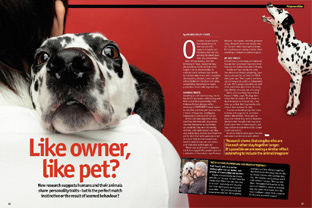Welcome to Petplan’s blog, a space where you can read up on the latest pet-news, find out interesting facts and tips about keeping your pets happy and healthy, and share your views on hot topics.
Refine articles by
clear searchJay the dog and Petplan - a long-term relationship

Overcoming fear in an adopted dog

Problems with your rabbit's teeth?

Are you becoming more and more like your pet?

How to worm a difficult cat

Q: Can you tell me any simple way to worm my cat Maude, whether using a tablet or another method? She’s a cantankerous old thing and I find it almost impossible to get a tablet down her without being badly scratched.
A: Tableting is one of the most common difficulties experienced by cat owners. Best undertaken by two people, a cat can be carefully wrapped in a towel to protect all involved from their sharp claws.
Using a plastic tableting instrument bought cheaply from your local vet clinic, tip your cat’s head back so that their nose points to the ceiling, gently opening the mouth before popping the tablet behind the tongue and quickly stroking the throat to encourage swallowing. If this process is impossible with Maude, some treatments in liquid form will kill all forms of intestinal worm commonly found in cats that live in the UK.
Available from your vet, these treatments are applied to the back of the neck like many flea treatments (some of which, incidentally, also treat gut worms), and get absorbed through the skin and into the bloodstream, before killing the worms present in the digestive tract. Used routinely every three months, this spot-on treatment may be the answer to your feline’s internal parasite problems.

